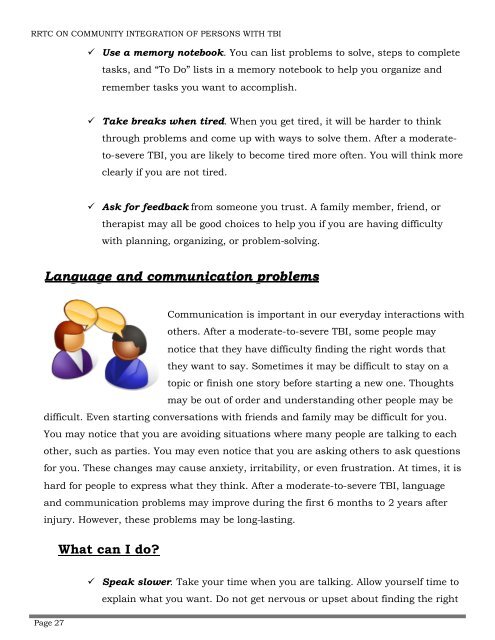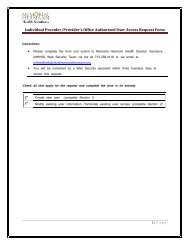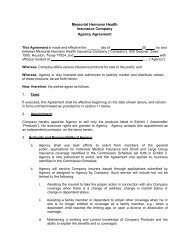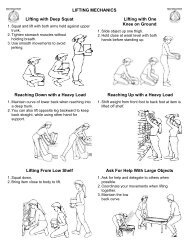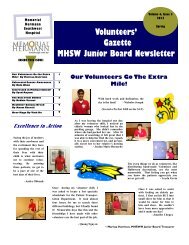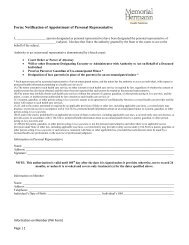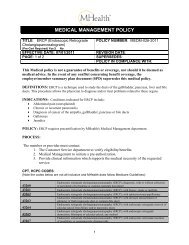I Have a What? A Guide for Coping with Moderate-to-Severe TBI
I Have a What? A Guide for Coping with Moderate-to-Severe TBI
I Have a What? A Guide for Coping with Moderate-to-Severe TBI
- No tags were found...
You also want an ePaper? Increase the reach of your titles
YUMPU automatically turns print PDFs into web optimized ePapers that Google loves.
RRTC ON COMMUNITY INTEGRATION OF PERSONS WITH <strong>TBI</strong>Use a memory notebook. You can list problems <strong>to</strong> solve, steps <strong>to</strong> completetasks, and “To Do” lists in a memory notebook <strong>to</strong> help you organize andremember tasks you want <strong>to</strong> accomplish.Take breaks when tired. When you get tired, it will be harder <strong>to</strong> thinkthrough problems and come up <strong>with</strong> ways <strong>to</strong> solve them. After a moderate<strong>to</strong>-severe<strong>TBI</strong>, you are likely <strong>to</strong> become tired more often. You will think moreclearly if you are not tired.Ask <strong>for</strong> feedback from someone you trust. A family member, friend, ortherapist may all be good choices <strong>to</strong> help you if you are having difficulty<strong>with</strong> planning, organizing, or problem-solving.Language and communication problemsCommunication is important in our everyday interactions <strong>with</strong>others. After a moderate-<strong>to</strong>-severe <strong>TBI</strong>, some people maynotice that they have difficulty finding the right words thatthey want <strong>to</strong> say. Sometimes it may be difficult <strong>to</strong> stay on a<strong>to</strong>pic or finish one s<strong>to</strong>ry be<strong>for</strong>e starting a new one. Thoughtsmay be out of order and understanding other people may bedifficult. Even starting conversations <strong>with</strong> friends and family may be difficult <strong>for</strong> you.You may notice that you are avoiding situations where many people are talking <strong>to</strong> eachother, such as parties. You may even notice that you are asking others <strong>to</strong> ask questions<strong>for</strong> you. These changes may cause anxiety, irritability, or even frustration. At times, it ishard <strong>for</strong> people <strong>to</strong> express what they think. After a moderate-<strong>to</strong>-severe <strong>TBI</strong>, languageand communication problems may improve during the first 6 months <strong>to</strong> 2 years afterinjury. However, these problems may be long-lasting.<strong>What</strong> can I do?Speak slower. Take your time when you are talking. Allow yourself time <strong>to</strong>explain what you want. Do not get nervous or upset about finding the rightPage 27


